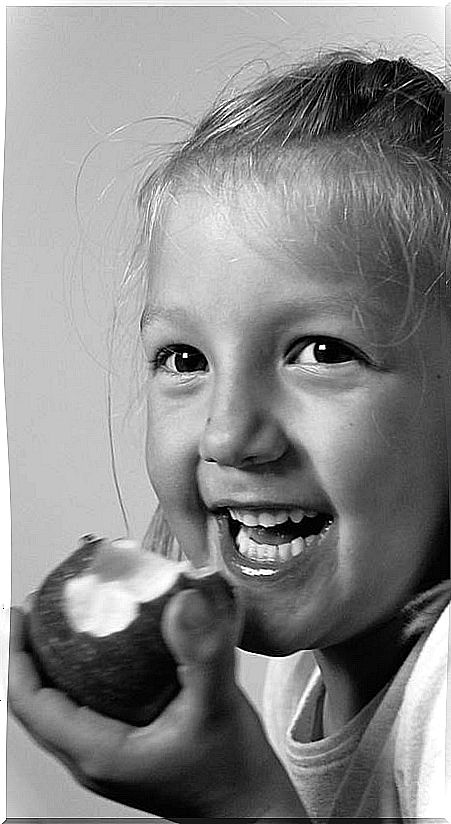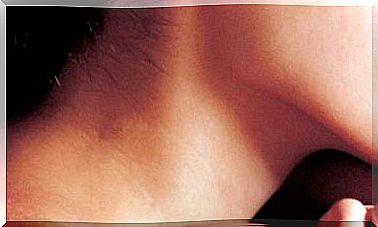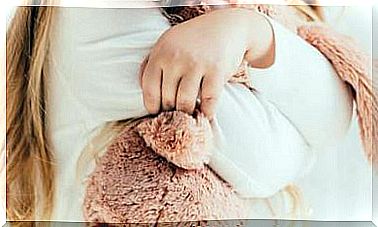Fear Of The Dentist In Children: How To Avoid It
For many children, visiting the dentist can become a difficult experience. To avoid getting into difficult situations, we can take some preventive measures.

- Symptoms and causes of fear of the dentist
- Keys to avoid fear of the dentist in children
- 1. Prevent without punishment or threats
- 2. Maintain a positive attitude
- 3. Let him get acquainted with the dentist
- 4. Find the right professional
When my 12-year-old daughter experiences any discomfort in her teeth or teeth, she asks us directly to call her dentist for a check-up. She took up this custom since she was little and continues to do so today. I am aware that this request from my daughter is not common in many families. Quite the contrary: for many children a visit to the dentist is a tense and unpleasant experience.
In this article I help you to recognize the fear of the dentist in children and to help them so that the experience of going to this specialist is not so unpleasant for them.
Symptoms and causes of fear of the dentist
The fear of going to the dentist is one of the most common fears in children and adults. It manifests itself with the following emotional reactions when visiting this specialist’s office:
- Anxiety
- Afraid
- Stress
- Anguish
The reasons why fear of the dentist occurs are several:
- Fear of pain.
- Fear of the unknown.
- Having had a previous unpleasant experience.
- The attitude of the parents in the consultation or towards dental treatments.
Keys to avoid fear of the dentist in children
To prevent a visit to the dentist from becoming a tense and unpleasant experience, parents can take some preventive measures:
1. Prevent without punishment or threats
It is normal that the oral hygiene of our children is not as frequent or rigorous as ours. Our young children have a hard time remembering to brush their teeth and many also don’t like the taste of toothpaste or the feel of a brush.
This lack of hygiene creates a conflict for adults, aware of the importance of good teeth care.
In these cases, instead of using rewards, punishments or threats that can generate fear of pain and the dentist such as: “if you don’t brush your teeth, the dentist will remove them all”, we can create family routines in which Let’s all go wash up (without pressuring them) and make this moment a fun situation.
In addition, we can talk to them, without creating fear, about the need to take care of our teeth so that they too are healthy.
It is also important to find a toothpaste and toothbrush that they do not dislike or cause rejection.
2. Maintain a positive attitude
The influence they receive from outside has a decisive impact on the psychological and emotional development of children and adolescents. Children learn from their elders and act like their elders. While some of these learnings are very positive for them, others, such as fears or fears, can be very harmful.
Before our visits or your visits to the dentist, we have to show a positive and open attitude. Instead of indulging in fear or pain, we can talk about the benefits that the solution to their dental problems will bring.
Once at the dentist we have to continue to be calm and relaxed. If our children see us calm, we will generate a feeling of serenity and a feeling that everything is going well.
3. Let him get acquainted with the dentist
Let your child accompany you, from a very young age, to your dental check-ups. In this way, you are familiar with the dentist, chair, instruments, and clinic environment. All this knowledge will reduce the drama when performing your own treatments.
My daughter, since she was months, accompanied us to our dentist. For her, these visits turned into an interesting annual experience. He always asked the dentist many questions and even, as part of the visit, asked to get on the chair and stayed for a while enjoying her comfort. The moment the dentist stepped on the pedal and lifted it was her favorite.
4. Find the right professional
The empathy and respect that the pediatric dentist shows towards your child is essential. Children are very sensitive to the treatment they receive from adults. A negative attitude of the dentist towards the child, such as speaking to him in an authoritarian way, not being respectful with him or only talking to the parents, ignoring the child’s requests, generates fear and anxiety in the little ones, which increases rejection and fear of treatment
Do not hesitate to look for a professional who, in addition to being well trained in their work, shows an empathic and respectful attitude towards children.
5. Apply relaxation techniques
Even if your child goes to the dentist confidently, it is normal for him to feel, at the time of starting the treatment, some stress and anxiety. Teaching him some very simple relaxation exercises for these moments will be very useful.
Andrea, a 10-year-old girl who came to my office for another reason, told me in one of her sessions that she was undergoing orthodontic treatment but that she did not like these visits at all, that she felt anxious in each one of them. I taught him a very simple technique to relax through breathing and the results were excellent. She was able to go to her visits much more calmly and without feeling so anxious or worried.









